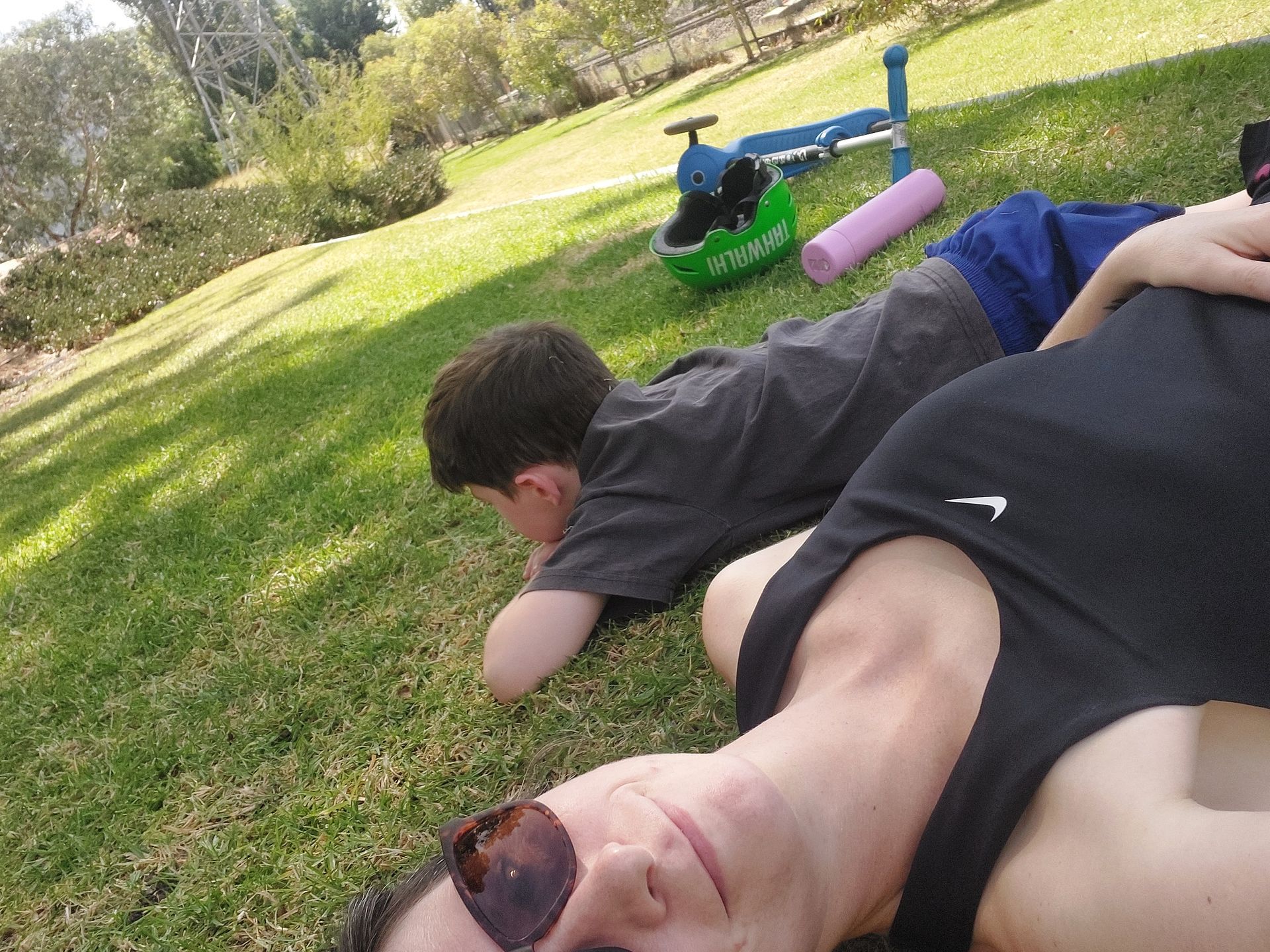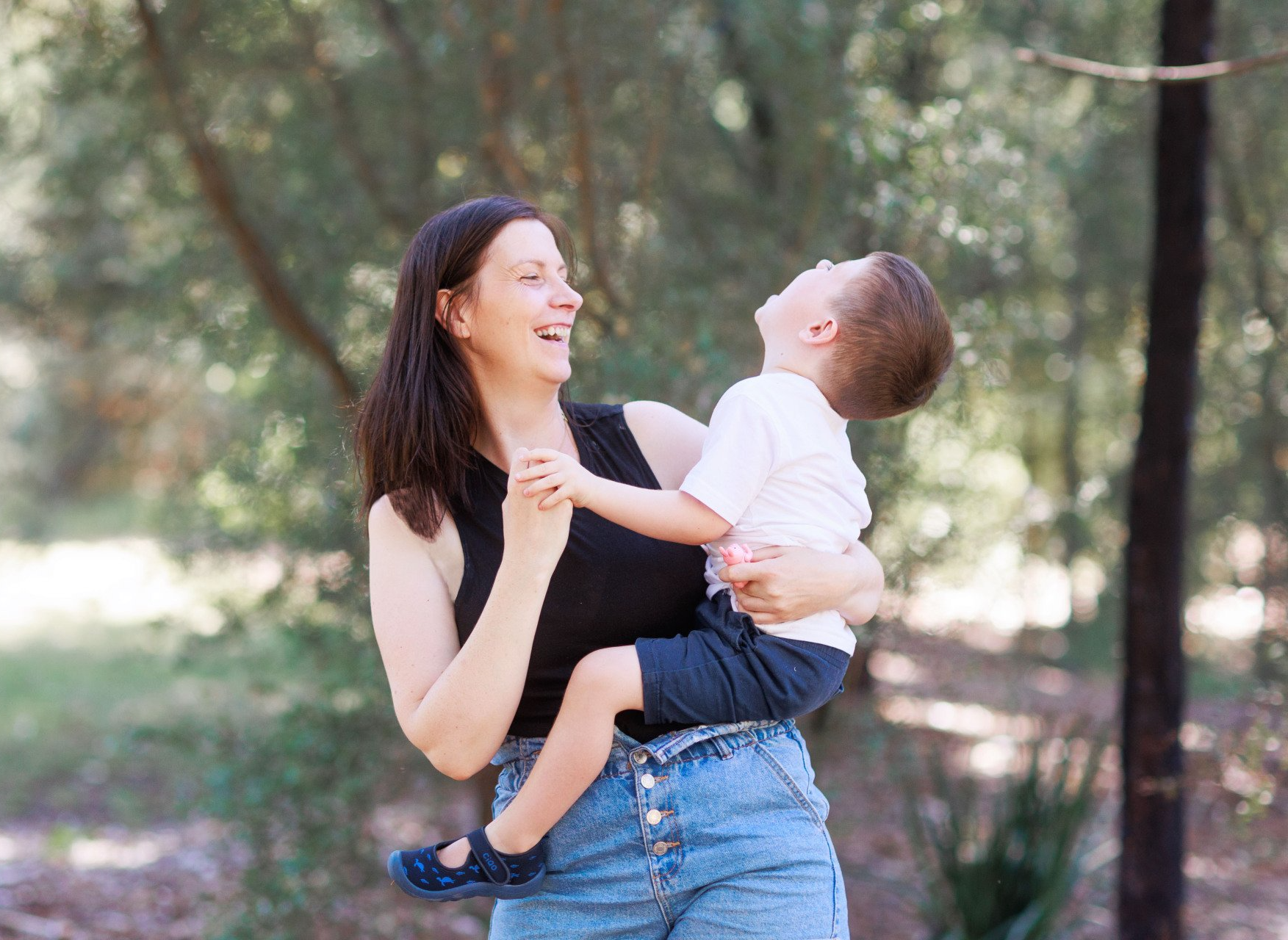Blog Layout
Reacting vs. Responding: Supporting Yourself in Challenging Moments
Maria Dillane • April 3, 2025

I am very familiar with reacting instead of responding. For most of my life, I’ve been very quick to react, and with hindsight, I can see that it usually caused more problems. It wasn’t until I experienced burnout in 2020 that I became interested in understanding why I was reacting the way I was—and, how it was impacting my well-being and my relationships.
Since then, I’ve immersed myself in learning about the nervous system, brain development, and behaviour, and I want to share some insights that might help you, too. Parenting is tough, let’s be honest. Yes, it’s wonderful and so rewarding, and it’s also really challenging. Here’s the thing – both can be true at the same time.
We’ve all heard the saying "It takes a village to raise a child," but in today’s world, many parents feel isolated, the village has shrunk. More families are juggling both parents working outside the home, while trying to manage childcare, housework, and the rising cost of living, all while trying to be patient and present for their children. Add in the challenges of modern life, and you have the perfect recipe for stress and overwhelm.
I can’t change your circumstances, but I can offer a different perspective—one that allows you to meet yourself with compassion, awareness, and practical tools to support both you and your child.
Why Do We React Instead of Responding?
The Science of the Nervous System
Dr. Stephen Porges’ Polyvagal Theory helps us understand why we sometimes react in ways we don’t intend. Our nervous system has three key states:
1. Social Engagement (Ventral Vagal)
– When we feel safe, connected, and regulated.
2. Fight or Flight (Sympathetic)
– When we perceive a threat and our body activates to protect us.
3. Shutdown (Dorsal Vagal)
– When stress becomes overwhelming, and our system collapses into withdrawal or disconnection.
The goal isn’t to stay in social engagement all the time (that’s unrealistic), but to recognise when we or our children are moving into fight, flight, or shutdown and learn how to move back to safety.
As parents, we are under immense pressure, and our nervous system often perceives constant threats—whether from our environment, the stress of daily life, or triggers from our own childhood. Our children's behaviour can also unintentionally activate our nervous system, making us react from a place of stress rather than awareness.
The good news:
💡 We can train our nervous system to become more resilient. Neuroscience shows that we can rewire our brain and strengthen our ability to respond rather than react.
Understanding Your Child’s Behaviour Through Brain Development
One of the most important things to remember is that children have immature brains and nervous systems. Their ability to regulate emotions is still developing, and in times of stress, they cannot self-regulate—they need co-regulation from us.
All behaviour is communication.
When a child is struggling, they are not trying to be difficult; they are trying to express an unmet need. Instead of asking “Why are they acting like this?”
Try asking:“What is my child trying to communicate?”
This shift in perspective allows us to see behaviour through a lens of understanding rather than frustration. It also helps us recognise that our own reactions are often a response to past experiences, stress, or unmet needs.
That’s why self-awareness is important—the more we understand what’s happening within ourselves, the more we can show up for our kids in a ways that help.
Practical Strategies for Managing Reactions
1️. Reframe the Behaviour
➡️ See behaviour as communication, not defiance. Instead of thinking “They’re being naughty”
shift to “They’re struggling and need my help.”
2️. Meet the Need Beneath the Behaviour
➡️ Ask yourself: “What is my child trying to express?” Behaviour is a clue to an underlying need, whether that’s connection, safety, or sensory regulation.
3️. Validate Emotions
➡️ You don’t have to agree with your child to help them feel heard. Saying “I see you’re really upset about this” can make all the difference.
4️. Model Emotional Regulation
➡️ Children learn from watching us. When we take a breath, steady ourselves, and respond with calm, we teach them how to manage big emotions.
5️. Practice the Pause
➡️ When you feel yourself getting triggered, take a moment before responding. A deep breath, a short walk, or even just not reacting immediately can shift the entire interaction.
6️. Repair After a Reaction
➡️ No one is perfect, and we all have moments where we react in ways we don’t intend. Apologising and reconnecting teaches kids that mistakes are okay and relationships can be repaired.
Reframing Your Own Reactions
Just like our children, we react based on the state of our own nervous system, and our past experiences. Lots of us were raised in homes where big emotions were seen as negative challenging behasviour, and now, we find ourselves reacting in ways that don’t align with how we want to show up.
Instead of:
❌ “I should be calmer and more patient.”
Try:
✅ “I’m doing the best I can with the tools I have. I can learn and grow, just like my child.”
Instead of:
❌ “I’m failing as a parent.”
Try:
✅ “This is hard because I care. Repairing and reconnecting matters more than always getting it right.”
Parenting is not about perfection—it’s about showing up, learning, and trying again.
Recognising and reshaping our reactions is powerful—but you don’t have to do it alone. If you’d like more guidance in putting this into practice. I know firsthand how hard it can be to break old cycles and stay calm in the chaos of parenting. If you're looking for guidance, encouragement, and practical tools, here are some ways we can work together:
✔ Book a 1:1 session
– Personalised support for your parenting challenges
https://calendly.com/maria_reachingforcalm/30min
✔ Join a group workshop
– Learn practical tools in a supportive space
✔ Follow me on Instagram
– for more insights and strategies
https://www.instagram.com/reachingforcalm/
✔ Send me an email – maria@reachingforcalm.com
Let’s chat about how I can support you
Parenting is tough, but it doesn’t have to feel so overwhelming. With the right support and simple, practical tools, you can go from reacting in the moment to responding with more calm and confidence.
📩 Let’s connect – I’d love to support you!
Share
Tweet
Share
Mail




